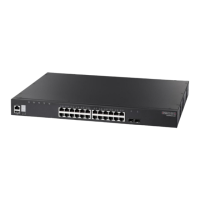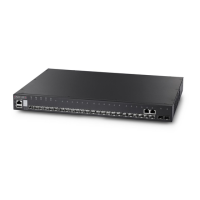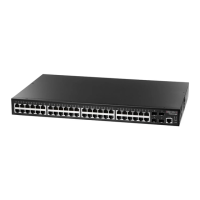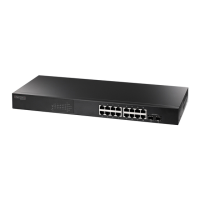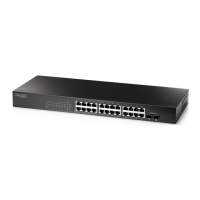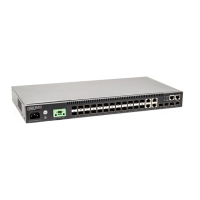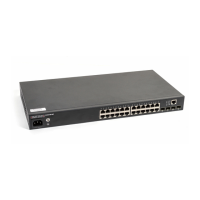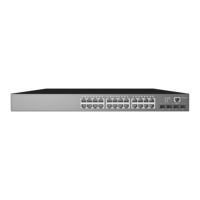Chapter 13
| Basic Administration Protocols
Configuring Event Logging
– 390 –
Configuring Event Logging
The switch allows you to control the logging of error messages, including the type
of events that are recorded in switch memory, logging to a remote System Log
(syslog) server, and displays a list of recent event messages.
System Log
Configuration
Use the Administration > Log > System (Configure Global) page to enable or
disable event logging, and specify which levels are logged to RAM or flash memory.
Severe error messages that are logged to flash memory are permanently stored in
the switch to assist in troubleshooting network problems. Up to 4096 log entries
can be stored in the flash memory, with the oldest entries being overwritten first
when the available log memory (256 kilobytes) has been exceeded.
The System Logs page allows you to configure and limit system messages that are
logged to flash or RAM memory. The default is for event levels 0 to 3 to be logged
to flash and levels 0 to 7 to be logged to RAM.
Parameters
These parameters are displayed:
◆ System Log Status – Enables/disables the logging of debug or error messages
to the logging process. (Default: Enabled)
◆ Flash Level – Limits log messages saved to the switch’s permanent flash
memory for all levels up to the specified level. For example, if level 3 is
specified, all messages from level 0 to level 3 will be logged to flash.
(Range: 0-7, Default: 3)
Table 22: Logging Levels
Level Severity Name Description
7
*
* There are only Level 2, 5 and 6 error messages for the current firmware release.
Debug Debugging messages
6 Informational Informational messages only
5 Notice Normal but significant condition, such as cold start
4 Warning Warning conditions (e.g., return false, unexpected
return)
3 Error Error conditions (e.g., invalid input, default used)
2 Critical Critical conditions (e.g., memory allocation, or free
memory error - resource exhausted)
1 Alert Immediate action needed
0 Emergency System unusable
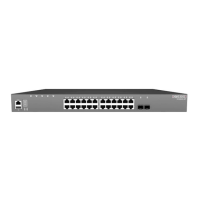
